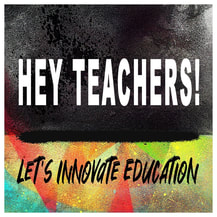Curiosity may be the very thing that moves us toward a more just world. The alternative--an incurious world--may be one where prejudice and misery reign. Curiosity may be one of the essential ingredients to empathy, something that we can all agree the world could use a little more of right now.” I have heard that empathy is the ability to understand and share another person's feelings, and compassion is the action resulting from empathy.
I believe deeply in helping my neighbor--that by improving their lot, I’m improving the world. I don’t think being compassionate is a sign of weakness. In fact, I think being kind makes me a better leader and actually improves my creativity. Let me clarify, though, with my interpretation of “nice” and “kind.” Being nice might mean ignoring the spinach in your friend’s teeth when they smile at you (you don’t want to bring it up and hurt their feelings, right? Make the situation awkward?). Being kind, though, is telling them straight out that they have food in their teeth. Then they won’t spend the rest of the day smiling spinach-ly at everyone (and resenting your unwillingness to point it out in the first place). Sometimes the kind thing is harder, and more uncomfortable, than being nice. But being kind and making hard choices doesn’t mean acting rude. Not at all! We can certainly criticize constructively and debate with open minds. As Dr. Todd Kashdan points out, “A culture that values debate, criticism, and quarrelsome discussions [is] more productive, creative--and ironically--harmonious.” When we can work together as a team and band together to creatively solve problems, our roads are smoother. Issues get nipped in the bud. The key here is “respectfully.” Research by Abraham Carmeli, Jane Dutton, and Ashley Hardin shows that people who interact courteously--with presence, awareness, and positive regard--are more likely to exchange ideas. This kind of nonjudgmental collaboration results in new perspectives and the creation of original, unique resources. As I mentioned in my previous post, curiosity allows us to learn from our mistakes and grow. Respectful collaboration alongside curiosity can lead to constructive criticism and allow us all to work together creatively. Even when working alone, though, respect can up our creativity game. Remember when we were kindly telling our friend about the spinach in their teeth? This is the same sort of constructive voice we need in our own heads. Berating our own ideas won’t lead to more creativity. Who wants to take risks if we’re immediately torn down? Learning self-compassion is vital to our creative process. We need to collaborate with others without judgement, and we need to do the same with ourselves. Dr. Kristin Neff, a self-compassion expert, teaches that “self-compassion provides resilience during challenges, decreases stress and burnout, increases creativity and wisdom, and allows leaders to recognize and learn from their mistakes without shame.” Surely there’s no way to be truly curious--to take risks--if we can’t be kind and honest with ourselves. What the world needs is people who can solve difficult, interesting problems. If we can be present together and communicate in a way that eliminates division, we can be more creative together. Isn’t it obvious, then, that kindness, curiosity and creativity can change the world?
0 Comments
Leave a Reply. |
Archives
July 2020
Categories
All
|

 RSS Feed
RSS Feed
